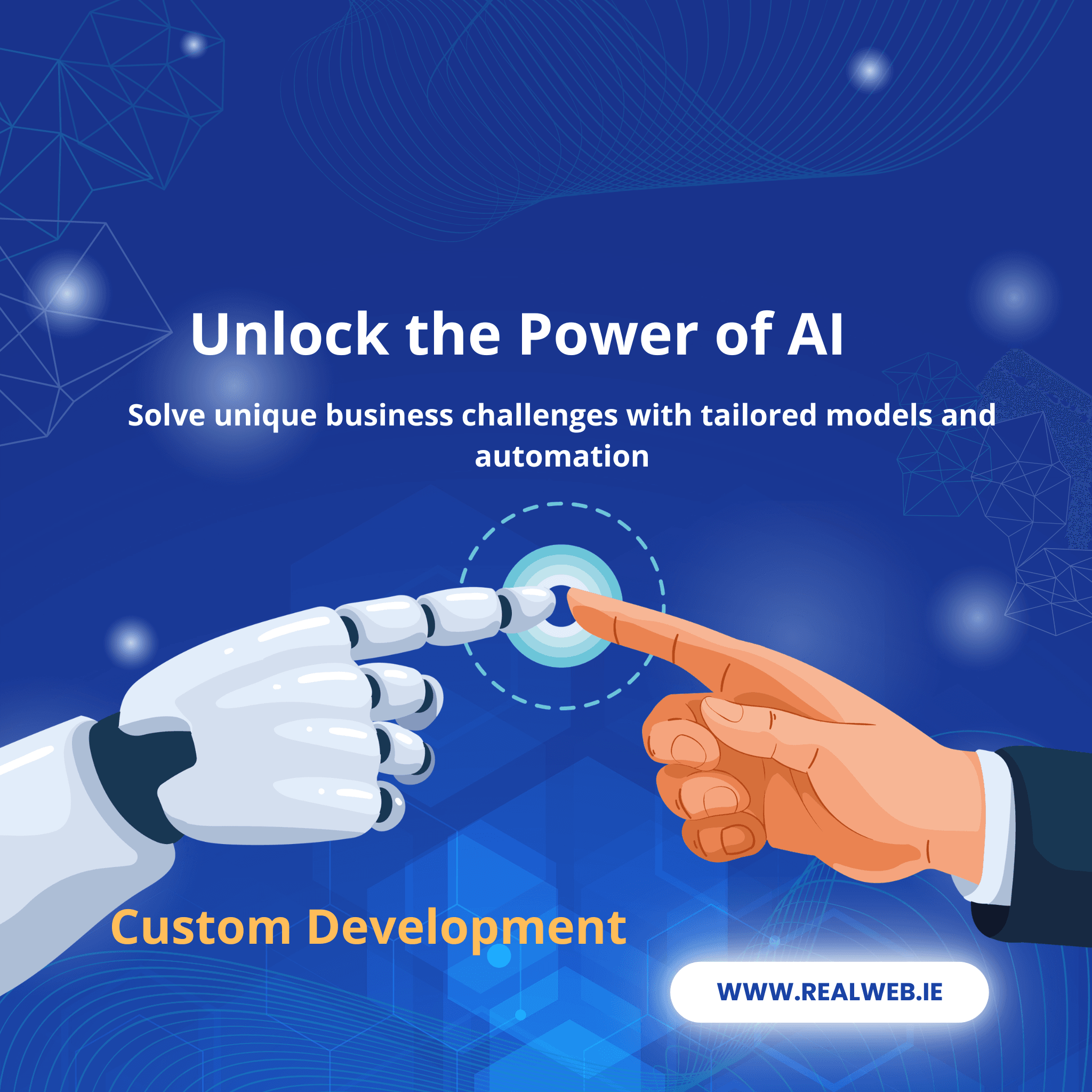As the eCommerce industry continues to expand, businesses are focusing on strengthening their logistics operations to enhance customer satisfaction. This shift is driving the demand for advanced software development services, particularly in key markets like eCommerce development in Dublin.
According to a report by Mordor Intelligence, the logistics automation market is expected to grow at a rate of 12.42%, with projections reaching $104.2 billion by 2026. These numbers highlight how integrating logistics software solutions can drive significant success for logistics companies in the near future.
Explore our full blog to discover how logistics software can benefit businesses, its key features, and the potential to automate logistics processes—especially when paired with eCommerce development in Dublin.
Table of Contents
ToggleUnderstanding Logistics Software Solutions
Different industries require different types of software, and the logistics sector is no exception. A single software can’t cater to the varied needs of all industries. Logistics software development offers specialized solutions like inventory management, warehouse management, fleet management, and order management. Through custom software development, businesses in logistics can address their unique requirements. These solutions are designed after thoroughly analyzing the company’s operations and challenges.
Logistics software comes in various forms—mobile apps, desktop applications, and web-based platforms—each designed to manage a specific aspect of logistics operations. Below are common types of logistics software solutions that many organizations rely on:
- Comprehensive Logistics Management Systems
- Transportation Management Systems
- ERP Logistics Solutions
- Warehouse Management Systems
- Supply Chain Management Software
- Third-Party Logistics Solutions
- Fleet and Freight Management Solutions
Why Your Company Needs Logistics Software Development
In today’s fast-moving business world, efficient logistics are vital for staying competitive and delivering excellent customer service. Companies must streamline their supply chains and boost operational productivity to stay ahead. This is where a robust logistics management system comes in. Logistics software can help manage inventory, monitor fleets, and provide valuable insights for informed decision-making. Here are key reasons why your business should consider logistics software development:
- Transform Business Data into Insights: Logistics software gathers data from various sources such as supply chain activities and inventory management. With advanced analytics and reporting, businesses can track trends and make smarter decisions.
- Boost Inventory Transparency: It provides real-time visibility into stock levels, goods location, and fleet movements. This transparency reduces the risk of stock shortages or overstocking and helps make informed supply-and-demand decisions.
- Increase Profitability: Automation in logistics can improve every part of the operation—from procurement to delivery—leading to cost savings and enhanced ROI. It also minimizes lost sales opportunities.
- Strengthen Risk Management: Equipped with tools to identify risks in the supply chain, logistics software enhances fleet tracking and helps detect issues in real-time, improving overall risk mitigation.
Also Read : Cutting-Edge Website Development Trends in Dublin: 2024 Insights
Functions of Logistics Software Solutions
Logistics software has revolutionized how businesses manage supply chains by offering features that improve efficiency, cut costs, and boost customer satisfaction. From inventory management to route optimization, logistics software empowers the industry at every step. Below are some of the key benefits and functions of logistics management software:
- Cloud-Based Logistics: With cloud technology, logistics data and processes are stored and accessed remotely via the internet. This eliminates the need for physical infrastructure, reduces costs, and allows businesses to access their data from anywhere, anytime.
- Process Automation: Logistics software automates repetitive tasks such as order processing, inventory management, and fleet scheduling. Automation reduces errors and enhances efficiency, freeing up time for more critical tasks.
- Predictive Analytics: By analyzing historical data, trends, and demand-supply patterns, predictive analytics helps companies forecast future demands. This allows businesses to make informed decisions and plan effective strategies.
- Artificial Intelligence: AI reduces the need for manual labor by automating problem-solving, decision-making, and learning processes. It can manage large datasets, track patterns, and suggest adaptive solutions, streamlining operations.
- IoT Integration: IoT-enabled devices like sensors and trackers give businesses real-time visibility into shipments, including location, weather conditions, and other critical data. This improves decision-making and enhances overall supply chain transparency.
- Mobile Applications: Mobile apps developed for logistics offer flexibility, real-time information, and convenience, enabling faster decision-making. Many companies specializing in mobile app development in Dublin provide budget-friendly solutions tailored to the needs of logistics businesses.
For businesses seeking to streamline logistics processes, investing in mobile app development in Dublin is a key step toward improving operational efficiency and meeting the demands of the modern supply chain industry.
Benefits of Logistics Software
Logistics software solutions offer numerous advantages for logistics organizations. Here are some key benefits of implementing logistics management software systems:
- Enhanced Efficiency: Logistics management software automates processes and improves transparency, reducing the need for manual labor and significantly boosting overall efficiency.
- Optimal Route Planning: With logistics management software, businesses can optimize routes for their fleets by considering factors such as location, distance, stops, traffic conditions, and delivery schedules. This optimization helps decrease costs and improve delivery times.
- Cost Reduction: By automating processes and improving inventory and fleet management, logistics management software minimizes overall operational costs. This integrated approach allows organizations to manage multiple logistics functions from a single platform.
- Reduced Errors: Logistics software, enhanced with IoT and AI technologies, automates and digitizes logistics processes. This reduces the likelihood of human errors associated with data entry, order processing, and invoicing.
- Data Analytics and Reporting: Logistics management systems provide comprehensive data analytics and reporting capabilities. This enables organizations to analyze performance metrics, identify trends, and make data-driven decisions to improve operations.
- Integration with Other Systems: Logistics management systems can seamlessly integrate with other business software, such as ERP and customer relationship management (CRM) systems. This integration ensures a smooth flow of data and enhances process coordination across the organization.
- Scalability: Logistics management software supports business scalability by effectively handling increasing shipment volumes and adapting to expanding network requirements.
- Improved Decision-Making: Access to real-time data and actionable business insights empowers organizations to make informed and strategic decisions, leading to better operational outcomes.
- Freight Rate Management: Logistics management systems facilitate efficient management of freight rates, allowing businesses to compare prices and select the most cost-effective carriers for their shipments.
- Compliance Management: Logistics management software assists organizations in adhering to various regulatory requirements, including customer documentation, hazardous material handling, and transportation regulations.
Also Read : Cutting-Edge Website Development Trends in Dublin: 2024 Insights
In today’s dynamic environment, businesses in Dublin can also leverage logistics software to enhance their operations alongside other technological solutions, such as mobile app development in Dublin. By integrating logistics software with mobile applications, companies can streamline their processes, enhance customer interactions, and optimize overall efficiency. Embracing these technological advancements positions logistics organizations to thrive in a competitive marketplace.
Key Technologies in Logistics Software Development
Logistics software development employs a variety of technologies tailored to meet clients’ unique needs. Here are some essential technologies commonly utilized in this field:
Web Development Technologies
- HTML/CSS: These languages provide the foundational structure and styling for web-based logistics applications, ensuring a user-friendly interface.
- JavaScript: This scripting language enhances logistics software by adding interactive and dynamic features, such as real-time tracking and responsive user interfaces.
Backend Development Technologies
- Programming Languages: We rely on languages like Python, Java, and C# for backend development, enabling effective business data processing and seamless communication with databases.
- Frameworks: Frameworks such as Django (Python), Spring (Java), and ASP.NET (C#) offer a systematic approach to building robust backend systems.
- Databases: We utilize relational databases like MySQL, PostgreSQL, and Oracle, alongside NoSQL options like MongoDB, to securely manage data.
API Integration
- Representational State Transfer (REST): We implement RESTful APIs to facilitate efficient communication and data exchange among various software systems involved in logistics operations, including Warehouse Management Systems (WMS), Customer Relationship Management (CRM), Supply Chain Management (SCM), fleet management systems, and order management systems. REST APIs are lightweight and provide enhanced security compared to SOAP.
- Simple Object Access Protocol (SOAP): Although less common than REST, we occasionally use SOAP for data exchange and transfer.
Cloud Computing
- Infrastructure as a Service (IaaS): We leverage cloud platforms such as Amazon Web Services (AWS), Microsoft Azure, and Google Cloud to host logistics applications, ensuring scalability and reliability.
- Platform as a Service (PaaS): PaaS solutions help us deploy logistics applications while abstracting infrastructure concerns, streamlining the development process.
Data Analytics and Machine Learning
- Data Analytics: Tools like Apache Spark and Hadoop enable us to process large datasets, uncovering valuable trends and patterns that inform business decisions.
- Machine Learning Frameworks: We utilize libraries such as TensorFlow to deploy machine learning models for applications like demand forecasting and route optimization, enhancing operational efficiency.
By harnessing these technologies, logistics software development can deliver powerful solutions that improve efficiency, visibility, and decision-making in the supply chain.
How Realweb Can Enhance Your Business Through Logistics Software Development
Realweb stands out as a premier logistics software development company, dedicated to transforming your logistics operations with tailored software solutions. Our logistics software is designed to optimize various facets of your business, including supply chain management, inventory oversight, order processing, fleet tracking, and warehouse optimization. With years of experience in delivering robust custom software solutions at competitive prices, we are well-equipped to meet your needs.
Our product development process includes the following steps:
- Requirements Gathering: We begin by thoroughly understanding and analyzing your requirements to deliver effective solutions.
- Deployment Choice: Clients can choose between cloud-based or on-premise deployment based on their preferences and needs.
- Functionality Decision: We help you determine essential functionalities, which may include modules like ERP, CRM, SCM, and WMS.
- Development Phase: Our team proceeds with the coding and development of your software product.
- Mobile Development: If needed, we create a mobile version of the software to enhance accessibility.
- Deployment: We ensure a smooth deployment process for your new software.
- Post-Launch Support: Our support doesn’t end with deployment; we provide ongoing maintenance and assistance.
If you have any questions or need more information, feel free to contact us or email us at contact@realweb.tech.
Also Read : Navigating the Latest Trends in Website Design Dublin: A 2024 Guide








